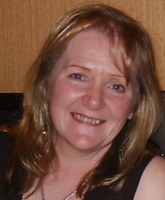Mary Maddock of Cork, Ireland reviews the new book “Alternatives Beyond Psychiatry” co-edited by Peter Lehmann and Peter Stastny. Mary is co-founder of MindFreedom Ireland.
‘Alternatives Beyond Psychiatry’ is written by many authors, ex-users and survivors of psychiatry, therapists, psychiatrists, social scientists, lawyers and relatives and they are all in agreement, as the title suggests, that we need to go beyond psychiatry. Many of them explain very well that the concept of ‘mental illness’ is a stumbling block.
Human suffering, interpreted and packaged as a disease, only makes matters worse for those who suffer while it lucratively rewards some of those who work in the field, especially the pharmaceutical companies. Kate Millett writes an amazing account on this point in the chapter ‘The illusion of mental illness’.
The alternatives that work are based on human values and help to develop that which enhances and improves our humanity. There are many effective ways described in this wonderful book. I would like to mention a few. Rufus May from the U.K. writes about reclaiming madness and establishing unusual beliefs. Rufus, who was diagnosed with ‘mental illness’ could see that his own madness had meaning. His search for a spying mission was a metaphoric search for a meaningful quest in his life.
Hannelore Klafki from Germany could see that her voices had meaning and Dutch psychiatrist Marius Romme found that when he listened to his clients, recovery could be achieved by many people labeled with ‘schizophrenia’ when the meaning of their voices were understood and valued.
The Icarus project was one I was particularly interested in because I was diagnosed a ‘manic depressive’. What a different perspective to be described as someone with dangerous gifts! Now you could see something that was very negative being more positive straight away and helping to empower and strengthen you.
People labeled with ‘mental illness’ need to be encouraged and find their strengths. With their emphasis on creativity, inspiration, alternative healing, modalities, radical egalitarianism and a commitment to self-determination, they attract many who have been alienated by other approaches.
Many alternative ways of healing have been very successful for people who have trouble with altered consciousness and they are described in this book, Soteria: A Reform Movement in Psychiatry, Hotel Magnus Stenbock: A User-controlled House in Helsingborg, Sweden, The Windhorse Project from Colorado, The Crisis Hostel in New York while it managed to survive, The Berlin Runaway House, The Second Opinion Society in the Yukon, Trauma-informed Peer Run Crisis Alternatives, A Sicilian Way to Anti-psychiatry: La Cura, Open Dialogues and Psychotherapy Instead of Psychiatry?
In the section Alternatives and Humane Treatment, David Oaks, a tireless worker for over thirty years and Director of MindFreedom International, writes about the non violent revolution in the ‘mental health’ system and his passion and charisma bounce off the pages. He thinks we are fighting more that the medical model. It is the domination model and is linked to all forms of domination in the world.
Here we find another remarkable author’s contribution, survivor and lawyer James B. Gottstein. Jim, as he is commonly known, has set up www.psychrights.org and has given his wealth, fine expertise, dedication and time to reducing forced treatments, such as forced drugs and electro shock and creating non coercive non medical model alternatives. He has taken on Big Pharma especially Eli Lilly at great personal and financial cost.
In this section too Peter Lehmann, the co-editor from Berlin and Maths Jesperson, an extraordinary psychiatric survivor from Sweden, describe the work of ENUSP (European Network of [ex-] Users and Survivors of Psychiatry) and WNUSP (World Network of ex- Users and Survivors of Psychiatry) and the International Network Towards Alternatives and Recovery is covered by Laurie Ahern, Chris Stevenson and Peter Stastny, who is the other co-editor of the book.
I was delighted to see that my compatriot, psychiatrist Pat Bracken, made an important contribution in the last section ‘Why We Need Alternatives to Psychiatry’ in his chapter ‘Beyond Models, Beyond Paradigms’: The Radical Interpretation of Recovery. He has the vision to see, as a psychiatrist, that when it comes to recovery, the real experts are the former users/survivors. Thanks for that, Pat and thanks to everyone who took the time and energy to put this important, informative book together.
This book will be helpful for anyone who has been labeled and diagnosed with a ‘mental illness’ to find self determination, recovery and transformation. It will dismiss the ignorance around the myth of ‘mental illness’ for those who read this book and it should be required reading for ministers for health, workers in the field, family members and all who are interested in the subject.
You may purchase Alternatives Beyond Psychiatry via the MindFreedom MadMarket, click here.
ALTERNATIVES BEYOND PSYCHIATRY: Peter Stastny / Peter Lehmann (Eds.). Soft cover, 432 pages, 3 figures, 14,8 x 21 cm, British ISBN 978-0-9545428-1-8, American ISBN 978-0-9788399-1-8. Berlin · Eugene, OR (USA) · Shrewsbury (UK): Peter Lehmann Publishing 2007. € 24.90 / US-$ 34.50 / £ 16.99 / CHF 43.70 / CAD 35.- / AUD 38.- / JPY 3900
Document Actions


